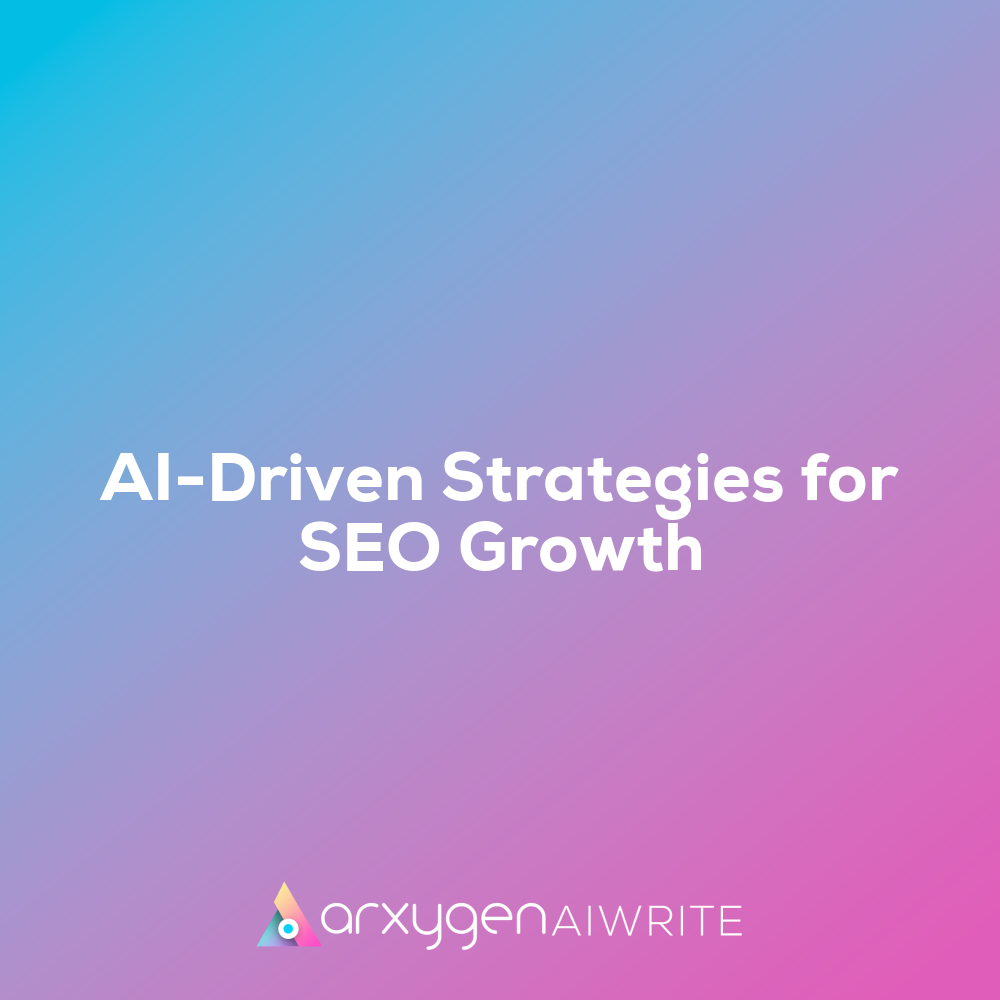Leveraging Artificial Intelligence for Enhanced SEO Strategies
In today’s digital landscape, integrating AI tools into your SEO strategy is not just beneficial; it’s essential. These advanced technologies facilitate comprehensive keyword research, enabling marketers to identify trending phrases and optimise their content effectively. By harnessing AI for content creation, businesses can produce high-quality articles that resonate with their target audience while adhering to search engine algorithms. Moreover, AI-driven performance analysis allows for continuous monitoring and adjustment of SEO tactics, ensuring optimal results.
“Integrating AI tools into your SEO strategy is not just beneficial; it’s essential for achieving sustainable growth in online visibility.”
Additionally, AI algorithms possess the remarkable ability to analyse search patterns and user behaviour, providing invaluable insights into how people interact with content online. This data helps SEO professionals refine their strategies by understanding what drives engagement and conversion rates. For instance, by examining user intent behind search queries, marketers can tailor their content to meet specific needs, thereby enhancing user satisfaction. Furthermore, AI’s predictive capabilities allow for proactive adjustments to strategies based on anticipated trends, keeping businesses ahead of the competition.
As AI technology evolves, its role in shaping effective SEO practices becomes increasingly significant. Embracing these innovations not only streamlines processes but also fosters a more data-driven approach to digital marketing. Ultimately, the combination of keyword research, content optimisation, and user behaviour analysis through AI empowers businesses to achieve sustainable growth in their online visibility.
Enhancing SEO Strategies Through AI-Powered Content Creation
In today’s digital landscape, leveraging artificial intelligence to craft personalised content can significantly enhance engagement with target audiences. By analysing user behaviour and preferences, AI tools can identify the types of content that resonate most, ensuring that every piece speaks directly to its intended readers. For instance, a blog about travel can utilise AI to determine trending destinations and tailor articles that not only inform but also inspire action.
Moreover, AI-driven content optimisation tools play a crucial role in refining on-page SEO elements. These technologies can assess various aspects of a webpage, such as keyword density, meta descriptions, and heading structures, providing actionable insights that improve search engine rankings. Imagine having a virtual assistant that continually monitors your website’s performance, suggesting adjustments in real-time to enhance visibility. As a result, businesses can stay ahead of the curve, adapting their strategies based on data-driven recommendations rather than guesswork.
Ultimately, the integration of AI into SEO practices isn’t just about improving search rankings; it’s about creating a more engaging experience for users. By harnessing these powerful technologies, companies can ensure their content is not only relevant but also impactful, driving higher levels of interaction and conversion.
Exploring the Ethical Considerations and Future Technologies in AI-Driven SEO
The integration of artificial intelligence in SEO growth presents a double-edged sword, raising several ethical concerns that demand attention. Relying heavily on AI tools can lead to a lack of transparency, as algorithms often operate as black boxes, making it difficult for marketers to understand how rankings are determined. Moreover, the potential for bias in these algorithms could inadvertently favour certain types of content or websites, marginalising others that may provide valuable information but don’t fit the algorithmic mould. This raises questions about fairness and inclusivity within the digital landscape.
On the flip side, the evolution of AI technologies is set to revolutionise SEO practices significantly. For instance, voice search optimisation is becoming increasingly essential as more users rely on smart speakers and virtual assistants. This shift necessitates a focus on natural language processing and conversational keywords to cater to user queries effectively. Additionally, predictive analytics is emerging as a powerful tool that can analyse user behaviour patterns and anticipate future trends, enabling marketers to tailor their strategies proactively.
As we look ahead, it’s clear that AI will continue to shape the future of SEO in ways we can’t yet fully comprehend. The combination of ethical considerations and technological advancements will require marketers to strike a delicate balance between leveraging AI’s capabilities and ensuring fair practices. Embracing this challenge can lead to innovative strategies that not only enhance visibility but also promote a more equitable online environment.

